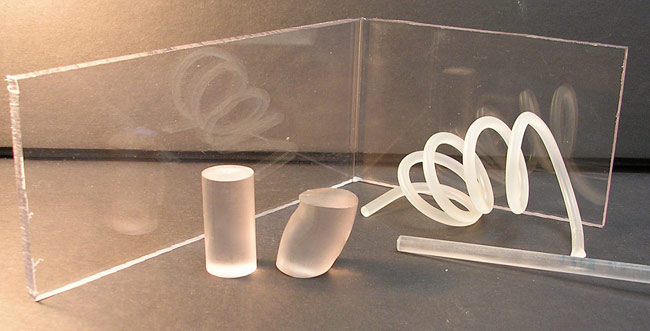Bend-But-Don't-Break is Chemist's Area of Expertise

Editor's Note: ScienceLives is an occasional series that puts scientists under the microscope to find out what makes them tick. The series is a cooperation between the National Science Foundation and LiveScience. Name: Mark Ediger Age: 51 Institution: University of Wisconsin-Madison Field of Study: Chemistry Plastics are everywhere in our modern world, largely due to properties that render the materials tough and durable, yet lightweight and easily workable. However, one of their most useful qualities — the ability to bend rather than break when put under stress — is also one of the most puzzling. This property, described as "plastic flow", allows many plastics to change shape to absorb energy rather than break apart, a subject of study by University of Wisconsin-Madison chemistry professor Mark Ediger. Ediger's research team, led by graduate student Hau-Nan Lee, has described a fundamental mechanism underlying this stiff-but-malleable quality. By subjecting a common plastic to physical stress — which causes the plastic to flow — the researchers realized they were dramatically increasing the motion of the material's constituent molecules, with molecular rearrangements occurring up to 1,000 times faster than without the stress. These fast rearrangements are likely critical for allowing the material to adapt to different conditions without immediately cracking. Read more about Ediger’s work at http://www.news.wisc.edu/16009 and read his responses to the ScienceLives 10 Questions below. What inspired you to choose this field of study? My physical chemistry professor at Bethel College, Kansas. What is the best piece of advice you ever received? It doesn’t matter how smart you are, there will always be people smarter than you. What counts is what you can get done. What was your first scientific experiment as a child? It involved firecrackers but I wouldn’t want to say more than that… What is your favorite thing about being a scientist or researcher? I can wear blue jeans to work and answer the questions that interested me.
What is the most important characteristic a scientist must demonstrate in order to be an effective scientist? There is no one answer for all scientists. Some excel in creativity and others in determination. For me, the most important thing is to find an interesting question — and then to concentrate on answering it.
What are the societal benefits of your research? We work to understand how materials work on a molecular level. This understanding should ultimately result in better materials and more reliable predictions about how materials will react to stress or temperature. Who has had the most influence on your thinking as a researcher? My Ph.D. supervisor at Stanford University taught me how to think about molecular level processes. What about your field or being a scientist do you think would surprise people the most? As a scientist, you have good friends all over the world. I really enjoy seeing these folks at meetings or communicating with them via phone/email. If you could only rescue one thing from your burning office or lab, what would it be? My laptop computer. What music do you play most often in your lab or car? I never play music at work — I prefer quiet.
Sign up for the Live Science daily newsletter now
Get the world’s most fascinating discoveries delivered straight to your inbox.









